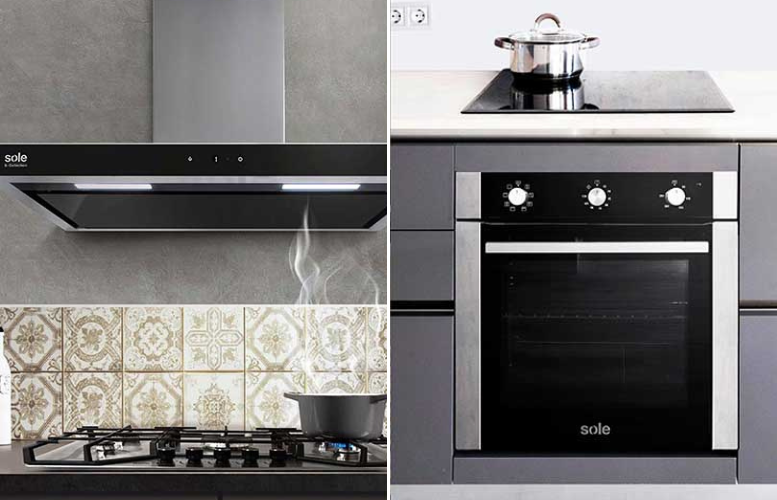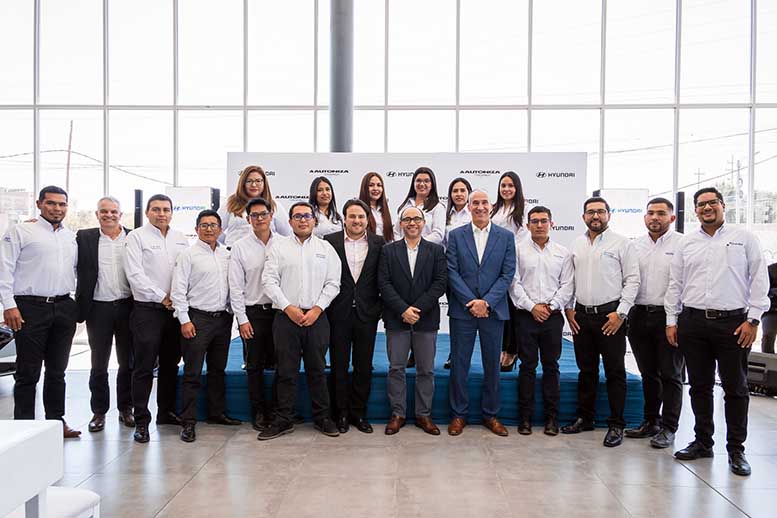
La comida peruana no solo deleita el paladar, sino que también representa un símbolo de identidad y orgullo nacional. Según una reciente encuesta, un destacado 92% de los peruanos elige la cocina peruana como un emblema en cualquier conversación, llenando de orgullo a quienes la disfrutan.
En este contexto, Cassinelli, el retail de acabados para el hogar más importante del Perú, presenta una guía práctica para la renovación de cocinas, adaptada a diferentes estilos de vida y necesidades específicas. Desde la cocina de un soltero hasta la de una familia tradicional de cuatro o más miembros, las demandas varían y la cocina se transforma según las necesidades cambiantes a lo largo de la vida.
Con décadas de experiencia y una gama de productos excepcionales, Cassinelli ofrece soluciones que combinan durabilidad y elegancia. Desde encimeras y griferías hasta electrodomésticos y accesorios, cada elemento está diseñado para elevar tanto la funcionalidad como el estilo en el corazón del hogar peruano:
1.Para el Estudiante Moderno:
Si prefieres pedir delivery, pero a veces te preparas algo de comer en casa, invierte en cocinas compactas y eficientes para preparaciones rápidas. Eleva el estilo con encimeras de acero inoxidable, que ofrecen quemadores de diferentes potencias, como los de la marca SOLE y la marca TEKA. Estas encimeras no solo son elegantes, sino también funcionales, ideales para el departamento de un joven soltero que valora la eficiencia y el diseño contemporáneo en su cocina. Además, agregando un lavadero para sobreponer como los de la marca RÉCORD, ideales para cocinas pequeñas, complementaras el espacio con un toque de practicidad.
2. Para la Cocina de los Recién Casados:
Para los recién casados, la cocina no solo es funcional, sino también un espacio para crear momentos especiales. Opta por las cocinas de encendido eléctrico como la cocina de encendido eléctrico empotrable de TEKA, con sus diseños duraderos y seguros, es ideal para garantizar una cocina sin preocupaciones.
Complementa con un horno empotrable como los de la marca Sole, equipado con tecnología avanzada para una cocción precisa y versátil, ideal para preparar cenas íntimas y especiales. Además, considera el lavadero amplio como el Tramontina Marea, que ofrece estilo y practicidad para mantener organizado tu nuevo hogar con elegancia y eficiencia.
3. Para la Cocina Familiar y Tradicional:
Para la Cocina Familiar y Tradicional, crea un ambiente acogedor utilizando mayólica de Cassinelli Design para las paredes, junto con encimeras de múltiples quemadores y hornos empotrados ideales para preparaciones de gran escala, como las cocinas empotrables de cinco quemadores de la marcas Sole o Tramontina disponibles en Cassinelli.
Además, integra lavavajillas eficientes y duraderos que simplifiquen las tareas diarias, como los modelos elaborados en cuarzo de la marca alemana Record, conocidos por su durabilidad, resistencia a impactos, manchas y bacterias, perfectos para celebrar eventos especiales con comodidad.
4. Para la Cocina del Chef o del Entusiasta Culinario:
Equipa tu cocina con tecnología avanzada como hornos eléctricos de la marca TEKA o SOLE, ideales para un control preciso de la temperatura. Instala campanas extractoras de alta potencia y griferías extraíbles que complementen el diseño profesional de tu espacio culinario, una buena opción sería el Lavadero American Pro de TEKA.
Cassinelli ofrece la combinación perfecta de tecnología de cocción segura y eficiente con nuestro horno empotrable, diseñado para adaptarse a cualquier cocina moderna y elegante. Completa tu equipo como un profesional con la campana extractora decorativa de diseño moderno en acero inoxidable y cristal templado como la de Campana Stilux de SOLE, ideal para mantener tu cocina limpia y libre de olores.
Para obtener más información o descubrir cómo Cassinelli puede inspirar el cambio en tu hogar, visita cualquiera de las tiendas del retail en Perú o accede a través de nuestra página web en www.cassinelli.com









